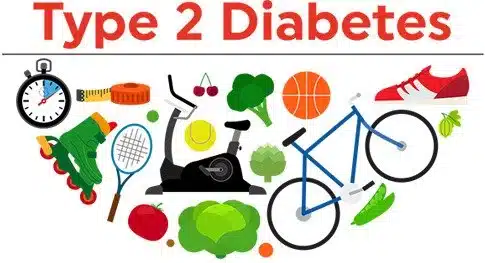There is evidence that reducing the number of meals consumed per day may have some benefits in terms of preventing Type 2 diabetes and obesity. Individual factors and overall dietary patterns, however, play a significant role in these conditions, and the relationship between meal frequency and health outcomes is complex.
Skeptics objected to the idea of skipping meals when intermittent fasting became popular among Hollywood celebrities. However, new research from the University of Georgia suggests that the celebrities were not so far off.
According to the review, a specific type of restricted eating may lower your chances of developing Type 2 diabetes and improve your overall health. This type of fasting, known as time-restricted eating, entails eating regular but fewer meals, foregoing late-night snacks, and not eating for 12 to 14 hours (often overnight).
Following a thorough review of published, peer-reviewed studies, the researchers discovered a link between the number of meals consumed and obesity and Type 2 diabetes.
What we’ve been taught for many decades is that we should eat three meals a day, plus snacking in between. Unfortunately, this appears to be one of the underlying causes of obesity.
Krzysztof Czaja
“What we’ve been taught for many decades is that we should eat three meals a day, plus snacking in between,” said Krzysztof Czaja, an associate professor of biomedical sciences at the University of Georgia’s College of Veterinary Medicine. “Unfortunately, this appears to be one of the underlying causes of obesity.”
The three-meal-and-snacks eating pattern keeps insulin levels from dropping during the day, which can overload the body’s insulin receptors given the amount of calories and sugars Americans consume on average. This results in insulin resistance and, in many cases, Type 2 diabetes.
“That’s why it’s so hard to lose body fat,” Czaja said. “We are not giving our bodies a chance to use it. Having fewer meals a day will allow these fat deposits to be used as an energy source rather than the sugar we keep consuming.”

Modern eating approach disrupts body’s biological clock
The researchers discovered that restricting one’s eating time allows the body to relax and lower insulin and glucose levels, which can improve insulin resistance, brain health, and glycemic control. It can also reduce calorie intake by about 550 calories per day without putting you under the stress of calorie counting.
Previous research has shown that sleep and meal schedule disruptions can alter the type and quantity of bacteria and other microorganisms in the digestive tract. Fasting, on the other hand, may have a positive effect on the gut microbiome, potentially preventing inflammation and a variety of metabolic disorders.
Furthermore, the review suggests that time-restricted eating can help regulate hormones that regulate appetite and energy levels. According to the publication, regular meal schedules, eating breakfast, and reducing meals and snacks can help protect against obesity and Type 2 diabetes. Furthermore, not all breakfasts are created equal. Avoid sugary breakfast cereals and pastries in favor of healthy fats and protein, such as eggs.
Despite the fact that time-restricted eating appeared to improve health, the researchers discovered that other types of restricted eating, such as fasting for days on end, provided few benefits.
Regular but fewer meals can stave off obesity and metabolic disorders
More than four out of every ten Americans are clinically obese, which means their weight is above what is considered a healthy range for their height. According to the Centers for Disease Control and Prevention, nearly 10% are severely obese.
Obesity can cause a number of health problems, including Type 2 diabetes, heart disease, and even some cancers.
“Obesity is an epidemic right now, especially in the United States,” said Czaja. “It is a disease that can be avoided.” When we began looking into the research, we discovered that ancient humans did not eat every day. That means our bodies evolved to not require food on a daily basis.”
The modern approach of three meals plus snacks became popular decades ago, and it’s a hard pattern to break.
“But our gut-brain signaling is not designed for this type of eating,” Czaja said.
The researchers emphasize that eating is not a one-size-fits-all situation. Smaller, less active people, for example, require fewer calories on average than taller athletes. So, while one meal of nutrient-dense food may suffice for some, others may require more. But one thing was clear from the research: eating fewer high-quality meals is a good guideline for people who are at risk of developing Type 2 diabetes and obesity.
“Also, definitely avoid late-night eating,” Czaja added. “Because our midnight snacks spike insulin, instead of us going into a resting state when we sleep, our GI is working on digestion.” Because we don’t get enough restful sleep, we wake up tired in the morning.”
















